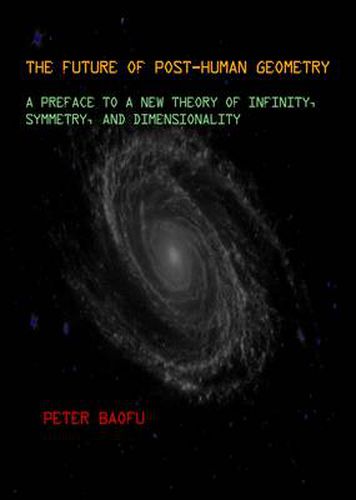Readings Newsletter
Become a Readings Member to make your shopping experience even easier.
Sign in or sign up for free!
You’re not far away from qualifying for FREE standard shipping within Australia
You’ve qualified for FREE standard shipping within Australia
The cart is loading…






Why should some essential properties of geometry (i.e., infinity, symmetry, and dimensionality) be both necessary and desirable in the way that they have been constructed-albeit with different modifications over time-since time immemorial?Contrary to the conventional wisdom in all history hitherto existing, the essential properties of geometry do not have to be both necessary and desirable. This is not to suggest, of course, that one has nothing to learn from geometry. On the contrary, geometry has contributed to the advancement of knowledge in many ways since its inception as a field of knowledge some millennia ago.The point in this book, however, is to show an alternative (better) way to understand the nature of geometry, which goes beyond human conception, intuition, and imagination, together with worldly experience of course, as its foundation, while learning from them all-with theoretical implications for time travel, hyperspace, and other important issues.If true, this seminal view will fundamentally change the way that the nature of abstraction in the thinking process is to be understood, with its enormous implications for the future advancement of knowledge, in a small sense, and what I originally called its post-human fate, in a large one.
$9.00 standard shipping within Australia
FREE standard shipping within Australia for orders over $100.00
Express & International shipping calculated at checkout
Why should some essential properties of geometry (i.e., infinity, symmetry, and dimensionality) be both necessary and desirable in the way that they have been constructed-albeit with different modifications over time-since time immemorial?Contrary to the conventional wisdom in all history hitherto existing, the essential properties of geometry do not have to be both necessary and desirable. This is not to suggest, of course, that one has nothing to learn from geometry. On the contrary, geometry has contributed to the advancement of knowledge in many ways since its inception as a field of knowledge some millennia ago.The point in this book, however, is to show an alternative (better) way to understand the nature of geometry, which goes beyond human conception, intuition, and imagination, together with worldly experience of course, as its foundation, while learning from them all-with theoretical implications for time travel, hyperspace, and other important issues.If true, this seminal view will fundamentally change the way that the nature of abstraction in the thinking process is to be understood, with its enormous implications for the future advancement of knowledge, in a small sense, and what I originally called its post-human fate, in a large one.